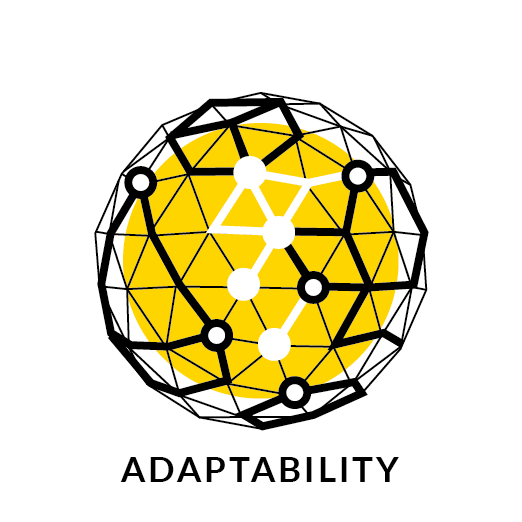Purpose limitation is a key personal data protection principle which requires that the collection and processing of personal data has a clearly defined purpose, and that such data cannot be reused for another purpose that is incompatible with the original purpose. Ensure that you only collect, process and store the necessary amount of data necessary for specified, explicit and legitimate …
Consent
Consent means offering data subjects real choice and control over the collection and processing of their data. Make sure that your users have a clear understanding over the ways their data are being collected, processed and stored, and real choice and control over the ways they can offer and withdraw consent. Be aware that consent does not absolve data controllers’ accountability …
Dignity
The dignity of the human person is not only a fundamental right in itself but also a foundation for subsequent freedoms and rights, such as the rights to privacy and the protection of personal data. Protect people’s dignity by protecting the collection, use and storage of their personal data. Be aware that breaching data privacy directly affects people’s dignity. Further …
Responsibility
Recognising the role of individuals and organisations involved in the design, management, and use of collaborative information systems necessitates appreciating the responsibility shouldered by each individual and group involved. This includes considering how actions could impact those engaged in the system as well as in greater society. Be responsive in accordance with the duties of your role. Ensure that there …
Trust
Trust is an ongoing practice that requires more than simply sharing resources; to trust is to voluntarily open oneself up to risk and vulnerability. It is supported by intellectual honesty, knowing one’s limits, and having the humility to consult others. It is practised through respect for the reports of others and willingness to base action on them. Trust in technology …
Transparency
As transparency is integrally linked to trust and accountability, an IT system should help users understand how it is designed and how it works by making its inner logics and functions visible. Find technological and social mechanisms to share the inner-workings of your system with users and those being served by its use. Help users understand the inner logics and …
Stewardship
Based on the idea of taking care of others’ assets and resources, stewardship extends to being responsible for the management and long-term maintenance of data assets based on their interests of future generations, not ours. Big Data, social media, new partnerships and technologies are boosting a general impetus for cross-border collaborations and shared use of complex technological structures, making the …
Solidarity
Solidarity is one of the core concepts of the EU’s Charter of Fundamental Rights. It refers to a relation to others and is based on the unity of community values, aims, interests, objectives or standards. Share responsibilities and benefits equitably, regardless of political, cultural, economic differences. Respect the sovereignty of fellow partners. Consider whether there is value in contestation …
Security
There has been a general shift from concerns with safety to concerns of security (focused on dangers arising from the illegal actions of others), a process that has intensified since 9/11 leading to what has been termed a ‘securitization’ of emergency response. The right to Security is enshrined in the Universal Declaration of Human Rights but in practice is challenging to …
Respect
Respect refers to measures taken to maintain the autonomy and dignity of participants and communities involved by information transactions. This includes tolerance of differences, recognitions of the rights of others, and taking responsibility for how one’s own actions affect others and their rights. The obligation to respect means that actions, states, organisations, must refrain from interfering with anyone’s ability to …
Proportionality
Any breach of the right to privacy has to be proportional to the interests of national security, public safety or the economic well-being of the country, for the prevention of disorder or crime, for the protection of health or morals, or for the protection of the rights and freedoms of others. The principle is related to data minimization. Ensure that …
Privacy
Privacy refers to the appropriate use of data relating an individual to a context and, to an expectation of privacy from data subjects. The EU’s updated data protection framework (GDPR) includes more privacy-enhancing measures such as ‘the right to be forgotten’ and ‘the right to access’; the latter, ensures that data subjects are able to obtain confirmation as to whether …
Non-discrimination
Non-discrimination requires joint measures to prevent, reduce and prepare for disasters and to distribute relief and promote recovery. It also guarantees the security of fundamental rights, without regard for gender, sexual orientation, race, colour, language, religion, political or other opinion, ethnic group, socioeconomic circumstances, disability, age or other status. New technological tools based on innovations such as big data, predictive …
Justice
It is understood as the obligation to treat others in accordance with what is morally right and proper. It includes the preservation of the rights and welfare of the individuals and communities involved, ensuring that information sharing practices are responsive to the needs of those involved. Treat each person involved in or impacted by the interaction (both sources and users …
Informational self-determination
The right of an individual to know when and to whom disclose personal data. In some European constitutions, the right to informational self- determination is understood to be part of basic rights to freedom, which are inviolable. Support people (populations affected by disasters, responders, volunteers) in knowing what kind of data are collected and how they are being used. Sources …
Inclusiveness
Bringing in new technologies for information sharing does not automatically mean bringing in more people. It can place new and old actors in awkward positions of negotiation, where inclusiveness of people, technology, and resources compete with each other. Nor does it automatically provide a higher sense of awareness. Including a wider range of data and sources means greater needs for …
Impartiality
Information sharing measures should be implemented without any favouritism between or within the population groups concerned. Priority in action should be given to the most urgent cases of distress or most urgent needs for sharing. Make decisions based on genuine need alone. Protect individuals and groups against actions interfering with rights, entitlements, and human dignity. Sources Prieur, M. (2011) Ethical Principles …
Humanity
All persons should be treated with respect, tolerance and compassion, regardless of the nature, origin, duration and place of the disaster. The dignity and rights of all disaster victims are respected and protected in all circumstances. Information sharing should promote mutual understanding, friendship, and cooperation. Prevent and alleviate suffering. Respect and active protection of dignity. Particular attention to the vulnerable. …
Fairness
Fairness refers to ability to make judgements based on the particular situation, interests, and feelings at hand, not just based on general regulations. It is linked to principles of neutrality: disaster prevention, preparedness, response and recovery should not account for political, racial, religious or ideological intent. Fairness and neutrality are not equal: fairness might mean technological innovation should be arranged …
Equality
According to the European Convention for the Protection of Human Rights and Fundamental Freedoms, to which the EU has acceded, all persons are equal before the law and entitled to equal protection. In disaster risk management there is a need for more dedicated action to tackle underlying disaster risk drivers, such as the consequences of poverty and inequality. Furthermore, new …
Diversity
Diversity directly relates to the EU tradition and objectives and to the value of ‘unity in diversity’. It implies leaving sufficient implementation room for national diversity and flexibility; translation between roles, languages, IT systems and considerations on data sharing structure. Provide support for translation between roles, languages, situations, and IT systems. Consider how data sharing structures address diverse needs and …
Data Protection
As increasing amounts of personal information are being collected and processed in often opaque and increasingly complex ways, protection of personal data and privacy are seen as fundamental for the protection of human dignity. Legal frameworks such as the GDPR and the UK’s Data Protection Act (2018) are being brought into force to ensure such protections. In cases where data …
Co-operation
Organisations, states, and persons should co-operate, regardless of political, economic, social and cultural differences to strengthen disaster resilience, security, and human rights. They should also interact according to their capacities. Establish information sharing agreements Inform and enable participation from all relevant parties In interactions, provide clarity of purpose Further information Working together is a fundamental precondition for all types of …
Beneficence
Beneficence refers to action that is done for the benefit of others, i.e. to prevent harms or improve the situation of others. In information sharing, beneficence refers to efforts of weighing risks and benefits. This requires balancing information flow and safeguarding subjects. Avoid harm for people and for environment. Support user competence in engaging with a diversity of information. Manage …
Autonomy
All parties – individuals, organisations, regions, nations – need to be able to maintain autonomy in order to properly collaborate and develop joint responsibility. Collaboration should not require one organisation or community to give up control or lose their voice to achieve a shared ideal. A practitioner should not lose their autonomy to work in their disaster management role for …
Anonymity
Anonymity might apply to different people and processes. Data subjects may be granted anonymity, and anonymity may be given to those providing information and those acting upon it, in which case it grants specific forms of power. Anonymity for information providers or users may be practised, for example, when there is fear of discrimination, that is, a concern that information …
Adaptability
This principle withstands the need for change, exception, improvisation and diversity as collaborations expand, contract, and shift over time. Two particular features of adaptability are important: flexibility and reversibility. Be flexible to support users in evaluating and changing parameters, data flows, and the components of a particular assembly of technologies and practices. Give users control to improvise and adapt the …
Accessibility
The concept of accessibility covers both access to information – i.e. incorporating access principles, such as readability and simple navigation, into the design – and access to physical technology or internet networks that make it possible for any user to engage with the system being created. Suggestions Be inclusive of stakeholders (in the widest definition), of all potential situations of …
Accountability
Accountability means being answerable for one’s choices, actions and expectations of one’s role. It also applies to technological infrastructures and algorithms as these should ‘account for’ their affordances in intelligible ways. Suggestions Be answerable for actions in information sharing. Build systems that are accountable for their operation. Further information Accountability means being answerable for one’s choices and actions and recognising …





























